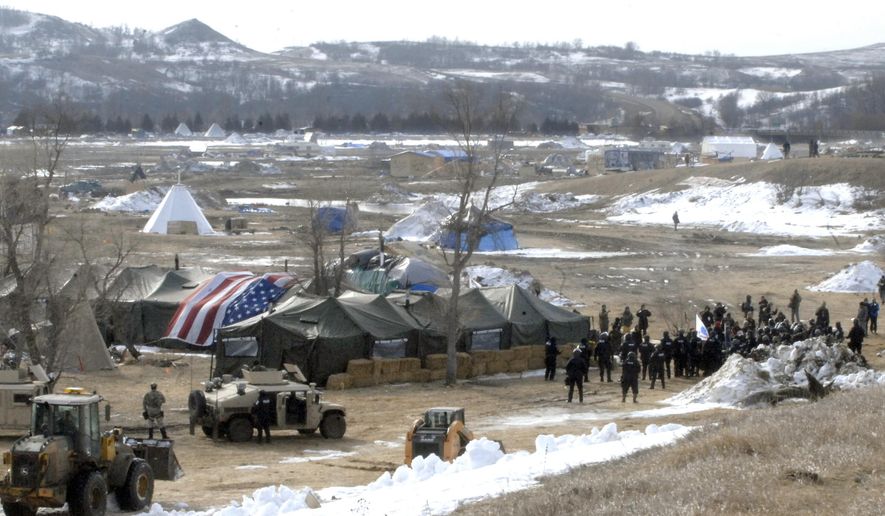Cleanup crews have removed 48 million pounds of trash so far from the largest Dakota Access oil pipeline protest camp — and they’re not finished yet.
The North Dakota Department of Emergency Services said Tuesday that a Florida-based contractor hired at a cost of $1 million to clear trash, waste and other debris from the Oceti Sakowin camp has hauled 24,000 tons of garbage since protesters were evacuated Thursday from the area.
“Cleanup at the former #Dapl protest site is nearly complete. As of today, 48,000,000 pounds of garbage has been removed from this location,” NDResponse said in a late Tuesday post on Facebook.
The department’s NDResponse page also posted a video showing bulldozers hauling away abandoned vehicles and trailers, as well as workers rounding up dozens of discarded propane tanks.
Trinity Analysis & Development Corp., a waste-management company hired by the U.S. Army Corps of Engineers, has been working at the site since Thursday, when the last of the anti-pipeline protesters was evacuated from the camp on a federal floodplain.
The Standing Rock Sioux had been leading a cleanup effort for several weeks before Trinity arrived at the site near Cannon Ball, North Dakota.
The contractor based in Shalimar, Florida, also is expected to clear the Rosebud and Sacred Stone camps. The Sacred Stone is located on private land within the Standing Rock reservation.
“Sacred Stone will be an added phase to the contract when required. The company is expected to be on the Oceti camp barring any weather or logistic delays,” the North Dakota Joint Information Center said in a press release last week.
Crews are racing to clear the camps before the snowmelt washes trash, waste and debris into the Cannonball River.
Activists have argued that the trash left behind pales by comparison to the threat of an oil pipeline running below Lake Oahe, but the protesters also have been accused of hypocrisy for failing to live by their environmentalist credo.
“Ridiculous,” said Jesse Wald of Bismarck on Facebook. “And these people supposedly cared for the environment.”
Added Cindy Lampi of West Fargo: “So they don’t really care about the water … if they did, they would have cared about what all that trash would do to the river!”
Foes of the pipeline have cited concerns about the potential damage to water quality from the threat of a rupture, while Energy Transfer Partners has insisted that the state-of-the-art oil pipeline is safe and has received all necessary state and federal permits.
The 1,172-mile, four-state pipeline is nearly complete following the granting two weeks ago of an easement under Lake Oahe, the final piece of the $3.8 billion project.
• Valerie Richardson can be reached at vrichardson@washingtontimes.com.




Please read our comment policy before commenting.